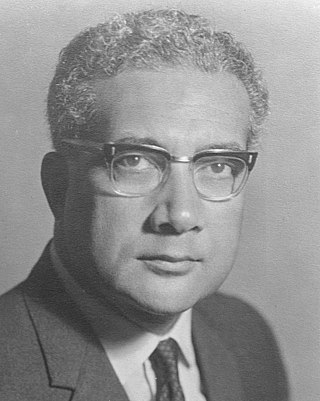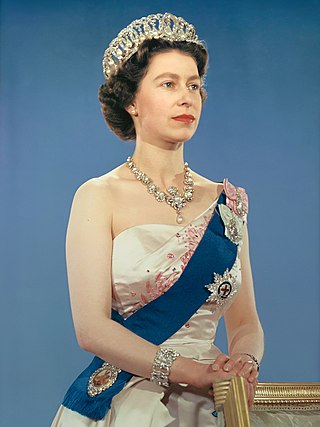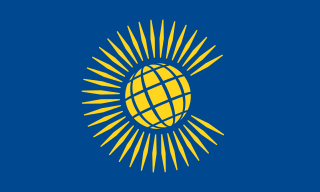
A constitution is the aggregate of fundamental principles or established precedents that constitute the legal basis of a polity, organization or other type of entity, and commonly determines how that entity is to be governed.

Constitutional monarchy, also known as limited monarchy, parliamentary monarchy or democratic monarchy, is a form of monarchy in which the monarch exercises their authority in accordance with a constitution and is not alone in making decisions. Constitutional monarchies differ from absolute monarchies in that they are bound to exercise powers and authorities within limits prescribed by an established legal framework. A constitutional monarch in a parliamentary democracy is a hereditary symbolic head of state who mainly performs representative and civic roles but does not exercise executive or policy-making power.

The Constitution of Canada is the supreme law in Canada. It outlines Canada's system of government and the civil and human rights of those who are citizens of Canada and non-citizens in Canada. Its contents are an amalgamation of various codified acts, treaties between the Crown and Indigenous Peoples, uncodified traditions and conventions. Canada is one of the oldest constitutional monarchies in the world.
The island of Taiwan is the subject of a geopolitical dispute between the Republic of China (ROC), which controls it, and the People's Republic of China (PRC), which claims it as part of its territory. Originally based in mainland China before and during World War II, the ROC government retreated to Taiwan in 1949 after it was defeated by the Chinese Communist Party (CCP) during the Chinese Civil War and the subsequent establishment of the People's Republic of China (PRC). Since then, the effective jurisdiction of the ROC has been limited to Taiwan, Penghu, Kinmen, Matsu, and smaller islands.

The National Archives and Records Administration (NARA) is an independent agency of the United States government within the executive branch, charged with the preservation and documentation of government and historical records. It is also tasked with increasing public access to those documents that make up the National Archives. NARA is officially responsible for maintaining and publishing the legally authentic and authoritative copies of acts of Congress, presidential directives, and federal regulations. NARA also transmits votes of the Electoral College to Congress. It also examines Electoral College and constitutional amendment ratification documents for prima facie legal sufficiency and an authenticating signature.

Scottish independence is the idea of Scotland regaining its independence and once again becoming a sovereign state, independent from the United Kingdom. The term Scottish independence refers to the political movement that is campaigning to bring it about.
An associated state is the minor partner or dependent territory in a formal, free relationship between a political territory and a major party—usually a larger nation.

RatuSir Kamisese Mara, was a Fijian politician who served as Chief Minister from 1967 to 1970, when Fiji gained its independence from the United Kingdom, and, apart from one brief interruption in 1987, as the first Prime Minister from 1970 to 1992. He subsequently served as president from 1993 to 2000.

The Fijian coups d'état of 1987 resulted in the overthrow of the elected government of Fijian Prime Minister Timoci Bavadra, the deposition of Elizabeth II as Queen of Fiji, and in the declaration of a republic. The first coup d'état, in which Bavadra was deposed, took place on 14 May 1987; a second coup d'état on 25 September ended the monarchy, and was shortly followed by the proclamation of a republic on 10 October. Both military actions were led by Lieutenant Colonel Sitiveni Rabuka, then third in command of the Royal Fiji Military Forces.

The Living Constitution, or judicial pragmatism, is the viewpoint that the U.S. constitution holds a dynamic meaning even if the document is not formally amended. The Constitution is said to develop alongside society's needs and provide a more malleable tool for governments. The idea is associated with views that contemporary society should be considered in the constitutional interpretation of phrases. The Constitution is referred to as the living law of the land as it is transformed according to necessities of the time and the situation. Some supporters of the living method of interpretation, such as professors Michael Kammen and Bruce Ackerman, refer to themselves as organicists.

The monarchy of Fiji arose in the 19th century, when native ruler Seru Epenisa Cakobau consolidated control of the Fijian Islands in 1871 and declared himself king, or paramount chief, of Fiji. Three years later, he voluntarily ceded sovereignty of the islands to Britain, making Fiji a crown colony within the British Empire.

Cornwall is administered as a county of South West England whose politics are influenced by a number of issues that make it distinct from the general political scene in the wider United Kingdom, and the political trends of neighbouring counties. Its position on the geographical periphery of the island of Great Britain is also a factor.

The Fijian coup d'état of December 2006 was a coup d'état in Fiji carried out by Commodore Frank Bainimarama against Prime Minister Laisenia Qarase and President Josefa Iloilo. It was the culmination of a political crisis that had begun the previous year when the Qarase government introduced three bills to the Fijian Parliament. The Qoliqoli, Land Tribunal, and Reconciliation, Tolerance, and Unity Bills dealt with the ongoing ethnic conflicts in Fiji and the aftermath of the 2000 coup, and were considered to be pro-ethnic Fijian. Bainimarama, the Commander of the Republic of Fiji Military Forces (RFMF), presented the government with a list of demands on October 16 that included withdrawing the bills. Attempts at negotiation failed and the military launched a coup on 4 December. Parliament was dissolved, Qarase and his cabinet were dismissed, and some civilian officials were placed under house arrest. After the Great Council of Chiefs refused to appoint a cabinet friendly to the military, Bainimarama reached an understanding with Iloilo and reinstated him as president on 4 January 2007. Iloilo then appointed Bainimarama acting prime minister in charge of the Interim Cabinet.

The Kingdom of the Netherlands, commonly known simply as the Netherlands, is a sovereign state consisting of a collection of constituent territories united under the monarch of the Netherlands, who functions as head of state. The realm is not a federation; it is a unitary monarchy with its largest subdivision, the eponymous Netherlands, predominantly located in Northwestern Europe and with several smaller island territories located in the Caribbean.

Accordance with International Law of the Unilateral Declaration of Independence in Respect of Kosovo was a request in 2008 for an advisory opinion referred to the International Court of Justice by the United Nations General Assembly regarding the 2008 Kosovo declaration of independence. The territory of Kosovo is the subject of a dispute between Serbia and the Republic of Kosovo established by the declaration. This was the first case regarding a unilateral declaration of independence to be brought before the court.

Indo-Fijians, also known as Indian Fijians, are Fijian citizens of South Asian descent, and include people who trace their ancestry to various regions of the Indian subcontinent. Although Indo-Fijians constituted a majority of Fiji's population from 1956 through to the late 1980s, discrimination and the resulting brain drain resulted in them numbering 313,798 (37.6%) out of a total of 827,900 people living in Fiji as of 2007.

The Commonwealth of Nations, often simply referred to as the Commonwealth, is an international association of 56 member states, the vast majority of which are former territories of the British Empire from which it developed. They are connected through their use of the English language and historical-cultural ties. The chief institutions of the organisation are the Commonwealth Secretariat, which focuses on intergovernmental relations, and the Commonwealth Foundation, which focuses on non-governmental relations between member nations. Numerous organisations are associated with and operate within the Commonwealth. It is known colloquially as the British Commonwealth.

In the United Kingdom, devolution is the Parliament of the United Kingdom's statutory granting of a greater level of self-government to the Scottish Parliament, the Senedd, the Northern Ireland Assembly and the London Assembly and to their associated executive bodies: the Scottish Government, the Welsh Government, the Northern Ireland Executive and in England, the Greater London Authority and combined authorities.
An uncodified constitution is a type of constitution where the fundamental rules often take the form of customs, usage, precedent and a variety of statutes and legal instruments. An explicit understanding of such a constitution can be developed through commentary by the judiciary, government committees or legal experts. In such a constitutional system, all these elements may be recognized by courts, legislators, and the bureaucracy as binding upon government and limiting its powers. Such a framework is sometimes imprecisely called an "unwritten constitution"; however, all the elements of an uncodified constitution are typically written down in a variety of official documents, though not codified in a single document. However, there may be truly "unwritten" constitutional conventions which while not usually legally enforceable may hold just as much sway as the letter of the law.

A second referendum on Scotland becoming independent of the United Kingdom (UK) has been proposed by the Scottish Government. An independence referendum was first held on 18 September 2014, with 55% voting "No" to independence. The Scottish Government stated in its white paper for independence that voting Yes was a "once in a generation opportunity to follow a different path, and choose a new and better direction for our nation". Following the "No" vote, the cross party Smith Commission proposed areas that could be devolved to the Scottish Parliament; this led to the passing of the Scotland Act 2016, formalising new devolved policy areas in time for the 2016 Scottish Parliament election campaign.


















